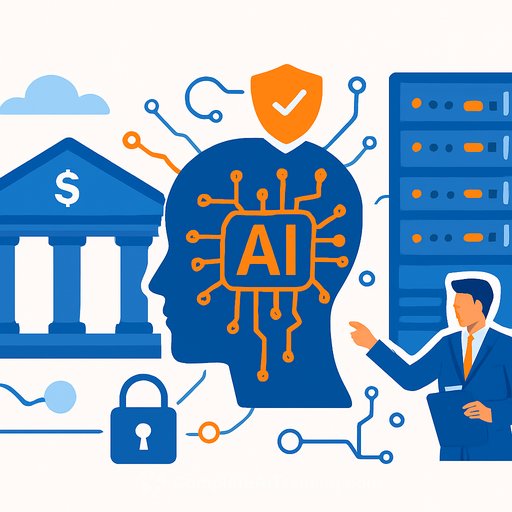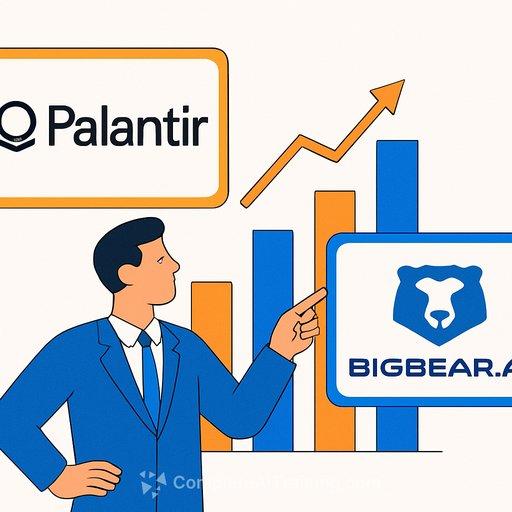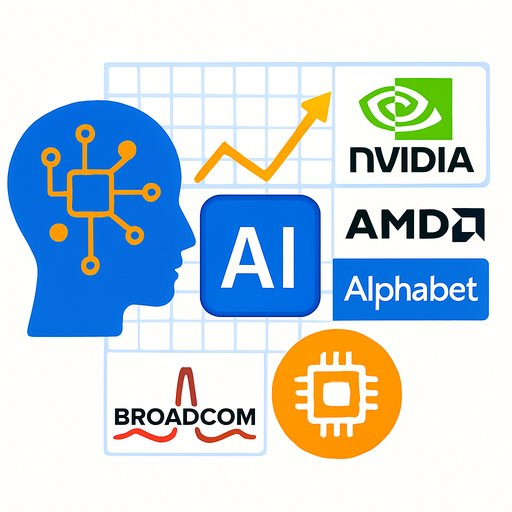The Growth Opportunity for Equipment Finance Companies in AI Infrastructure
Artificial intelligence (AI) and machine learning (ML) are reshaping industries and driving demand for specialized infrastructure. Equipment finance companies have a prime chance to fund this shift by providing flexible leasing and financing options for AI hardware and software.
Businesses integrating AI technologies require scalable solutions that balance capital expenditures with operational costs. Leasing models and subscription-based services are becoming especially attractive as companies seek to avoid large upfront investments. This creates a significant opportunity for equipment finance firms to support AI adoption while managing risks related to rapid technology changes and obsolescence.
A New Frontier for Equipment Financing
AI infrastructure includes the physical and software components that power AI applications. This broad category covers:
- High-performance computing hardware like GPUs, TPUs, and FPGAs
- Networking systems
- Storage solutions
- Software tools for data processing and model training
- Orchestration platforms that enable AI across cloud, edge, and on-premise environments
These assets can be owned, leased, or accessed on demand. According to IDC, the AI infrastructure market is expected to exceed $200 billion by 2028. In 2024 alone, spending on AI computing and storage hardware grew 97% year-over-year, reaching $47.4 billion.
Leading tech companies like Meta, Amazon, Alphabet, and Microsoft plan to invest up to $320 billion in AI and data center expansions in 2025, up from $230 billion in 2024. This surge underscores the need for financing solutions that help organizations scale AI capabilities without heavy upfront costs.
Over 70% of surveyed enterprises report being unprepared for future AI workload demands due to insufficient IT infrastructure, highlighting the financing gap equipment finance firms can fill.
Major equipment finance providers active in AI infrastructure include:
- DL L
- Cisco Capital
- Siemens Financial Services
- Wells Fargo Equipment Finance
- Key Equipment Finance
- HPE Financial Services
These firms offer traditional and subscription-based financing models tailored to AI hardware and cloud infrastructure needs.
Financing Opportunities for Data Centers
Data centers serve as the core facilities powering AI workloads. The growing demand for energy-efficient, high-capacity data centers creates financing opportunities beyond real estate and construction, especially in equipment leasing.
Global data center assets valued at $170 billion will seek construction and permanent financing in 2025. Capacity is projected to grow 15% annually through 2027, still falling short of demand.
Equipment finance companies can capitalize on several areas:
- Power Infrastructure and Energy Efficiency: Financing liquid cooling systems, backup power supplies, AI-driven energy management, and renewable energy solutions.
- Storage and Networking: Leasing high-capacity storage arrays, AI-optimized networking hardware, and aligning payment plans with expansion and refresh cycles.
- Data Center Construction and Expansion: Financing modular data centers, hyperscale AI processing facilities, and partnering with cloud providers for custom AI infrastructure financing.
AI Infrastructure Financing Beyond Data Centers
Many industries outside traditional tech are eager to scale AI but face capital constraints. Equipment finance firms can enable faster adoption by offering flexible financing options for sector-specific AI assets:
- Healthcare: Leasing AI diagnostics and medical imaging equipment to ease upfront costs.
- Finance: Funding AI-driven fraud detection and real-time data processing hardware.
- Manufacturing: Financing sensors, robotics, and AI platforms for smart factory initiatives.
- Retail and Logistics: Leasing AI-enabled inventory management and route optimization hardware.
These approaches reduce capital burdens and accelerate AI deployment across industries.
Edge AI: New Assets Require New Financing Models
Edge AI processes data on devices near its source—like industrial sensors, autonomous robots, and smart medical devices—reducing latency and bandwidth use. This is critical for time-sensitive applications in healthcare, manufacturing, automotive, and smart cities.
The global edge AI market was $20.8 billion in 2024 and is expected to grow at a 21.7% CAGR through 2030. Equipment finance opportunities here include:
- Leasing AI-optimized edge devices and industrial IoT solutions
- Financing embedded AI hardware for real-time analytics
- Subscription models for edge AI software and platforms
Risks and Challenges in AI Infrastructure Financing
Despite the opportunity, several factors could impact growth:
- Tariffs and Trade Restrictions: Import tariffs and U.S.-China trade tensions may raise costs and disrupt supply chains.
- Supply Chain Disruptions: Chip shortages and geopolitical risks affect hardware availability and financing terms.
- Regulatory Compliance: Data privacy, cybersecurity, and environmental regulations add complexity to leasing agreements.
- High Capital Costs and Market Volatility: Rapid hardware evolution risks depreciation and obsolescence; interest-rate changes affect financing affordability.
- Energy and Sustainability: Power demands and sustainability mandates may limit data center expansion; green financing solutions will be key.
The Future of AI Equipment Leasing and Finance
As AI adoption grows, equipment finance companies that offer flexible, cost-effective financing will support businesses in scaling AI infrastructure efficiently. Customized payment plans, AI data center financing, and subscription models for hardware and software will become essential.
Firms that adjust to this changing market stand to gain the most from the expanding demand for AI infrastructure.
For finance professionals seeking to deepen their understanding of AI and related technologies, exploring practical training resources can be valuable. Visit Complete AI Training for courses focused on AI applications in finance and technology.
Your membership also unlocks:






